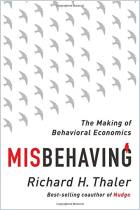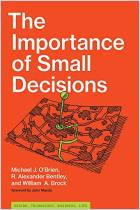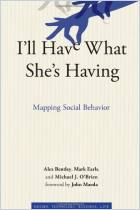
The Mind of the Market
Compassionate Apes, Competitive Humans and Other Tales from Evolutionary Economics
Used by arrangement with Times Books, an imprint of Henry Holt and Company
ISBN: 9780805078329
Pages: 336
Recommendation
This is a lively, entertaining, useful and uneven work. Author Michael Shermer ranges over an array of disciplines to synthesize current understanding of the intersection of economics and evolution. He defines and debunks homo economicus, or the economic man, a theoretical creation who behaves in a purely rational fashion. Shermer weaves personal experiences with interviews of researchers, summaries of classic texts, and contemporary experiments and observations of such well-known businesses cases as the Enron debacle. Readers with knowledge of behavioral economics or negotiation will find some familiar material in this book. For others, Shermer’s connections among biology, psychology, economics and ethics will be enlightening. He overreaches at times, making sweeping claims for the power of the market, but you don’t have to agree with every conclusion to enjoy the work. getAbstract recommends this to readers who are interested in behavioral economics, self-knowledge or the machinations of markets.
Summary
About the Author
Michael Shermer is a columnist for Scientific American and the author of several books including Why People Believe Weird Things.















Comment on this summary or Comenzar discusión